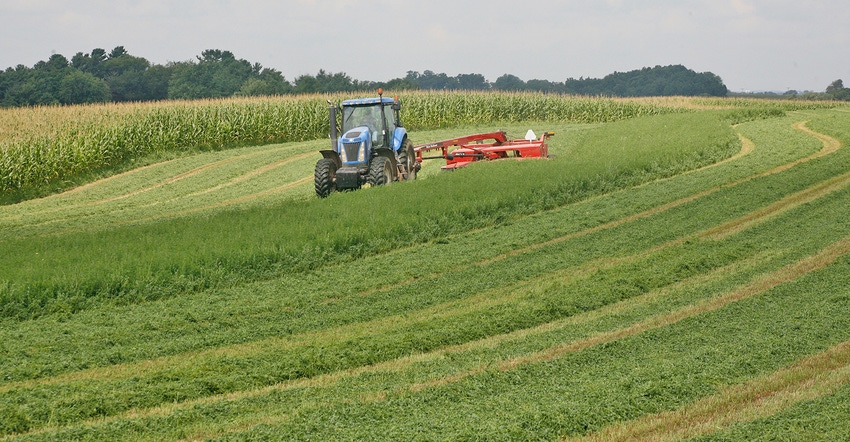July 3, 2018

My 28-year-old son told me he wants to come back to the farm and eventually take it over. This surprises me because he has worked off the farm for six years since graduating from college. I had no idea he was interested in farming. My wife and I milk 125 cows and farm 250 acres in central Wisconsin. We’re both 60 years old. We have a mortgage of $260,000 on the land and buildings. Most of that is from expanding our dairy and upgrading our facilities to a freestall-parlor setup in 2008 when our son went off to college. Our cows average 25,000 pounds of milk. Our machinery is older but adequate for this size operation. My son says he has saved about $75,000. Where do we begin trying to figure out if this will work?
The Agrivision panel includes: Doug Hodorff, Fond du Lac County, Wis., dairy farmer; Sam Miller, managing director, group head of agricultural banking, BMO Harris Bank; and Katie Wantoch, Dunn County, Wis., Extension ag agent specializing in economic development.
Hodorff: As children mature and work outside the family, they become aware of how the outside world of employment works. The first questions to ask your son could be what are his expectations for income and involvement in management decisions? These questions need to be asked and answered to lay out a strategic future for your farm. While you are asking your son questions, you and your wife need to be deciding how your future looks, from business and personal standpoints. Being a family unit, you will need some outside consultation to get these questions answered. Would you consider a trial time period to let everyone experience how well you would work together?
It doesn’t seem that your son has enough capital to buy into your business. My big concern is how many years you are willing to continue managing your business. If your wishes are for the farm to continue in the family, then take time to work through that strategy. If your thoughts are for the farm to supply you with income into retirement age, be careful about transferring equity to your son. I am concerned about cash flow. I question if the business has enough cash flow to support both wages and retirement.
Miller: This could be a win-win situation. Your son is coming back to the farm with cash to invest and experience away from the business, and this could potentially serve as both a management and ownership transition for you and your wife. As for where to start, reach out to a qualified Dairy Business Consultant and complete a business plan, including a goal-setting exercise for you, your son and the business going forward. This process will take some time, but the time spent planning will increase your chances of success. Good luck investigating bringing the next generation into the business.
Wantoch: It’s great to hear that your son is interested in joining you and your wife in your business. Joy Kirkpatrick, Extension outreach specialist with the University of Wisconsin Center for Dairy Profitability, indicates that there are four phases to a farm succession: testing, commitment, established and withdrawal.
Start with a testing phase that would be a trial period for you and your son. You can choose to pay him a wage or look at sweat equity provisions. I would encourage you to assign him duties around the farm and involve him in management decisions that expose him to learning the various responsibilities on a farm. This phase may take a few months or several years and should be evaluated throughout this time.
When you’re ready to move on to the next stage, then you should analyze the financial capacity of the farm to incorporate the next generation. Work with a consultant, Extension agent, instructor or someone who has experience assisting farms with transferring management and assets for a farm business.
If you have questions you would like the panel to answer, send them to: Wisconsin Agriculturist, P.O. Box 236, Brandon, WI 53919; or email [email protected].
You May Also Like




